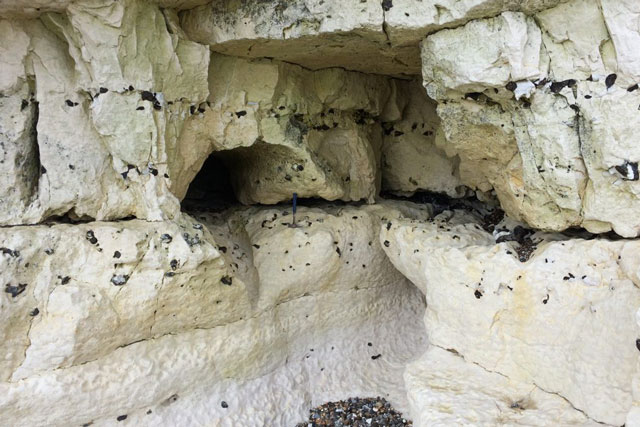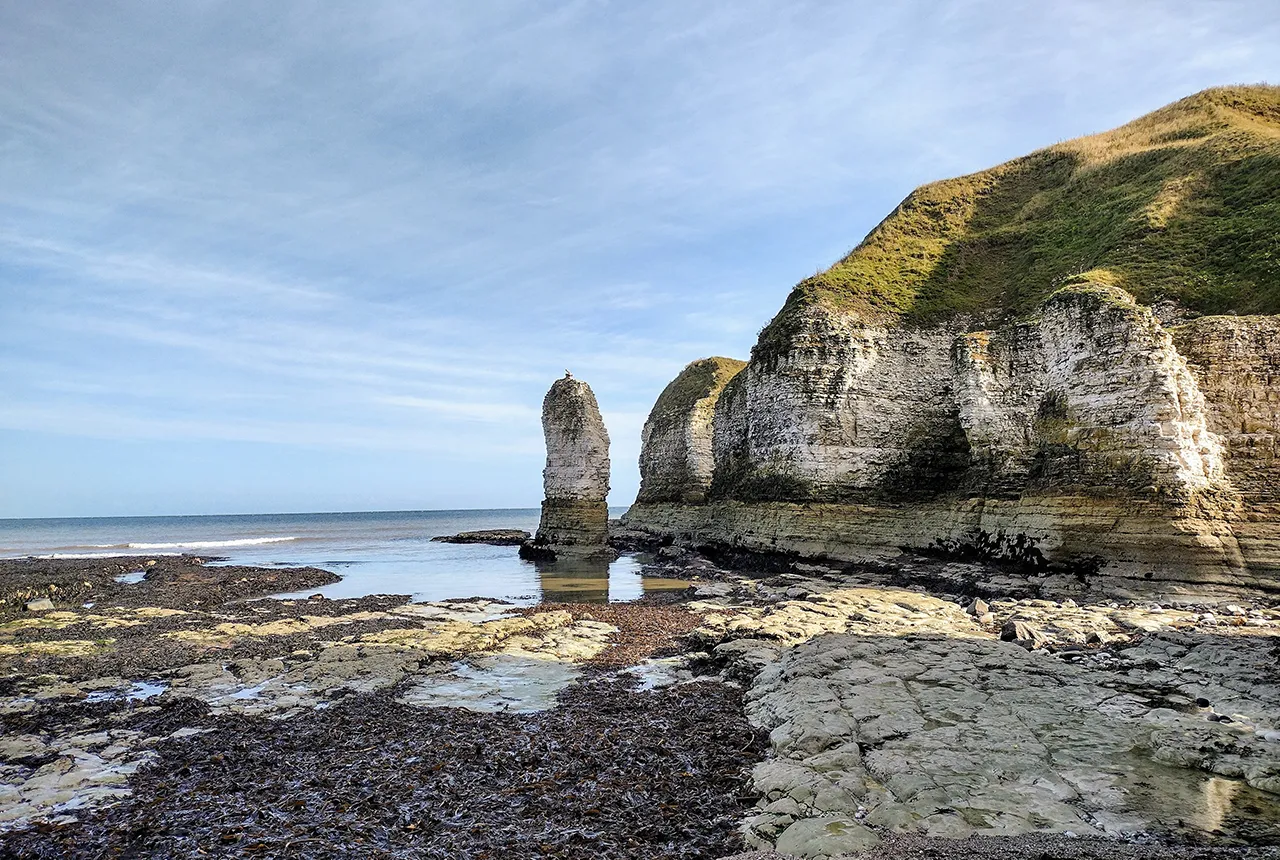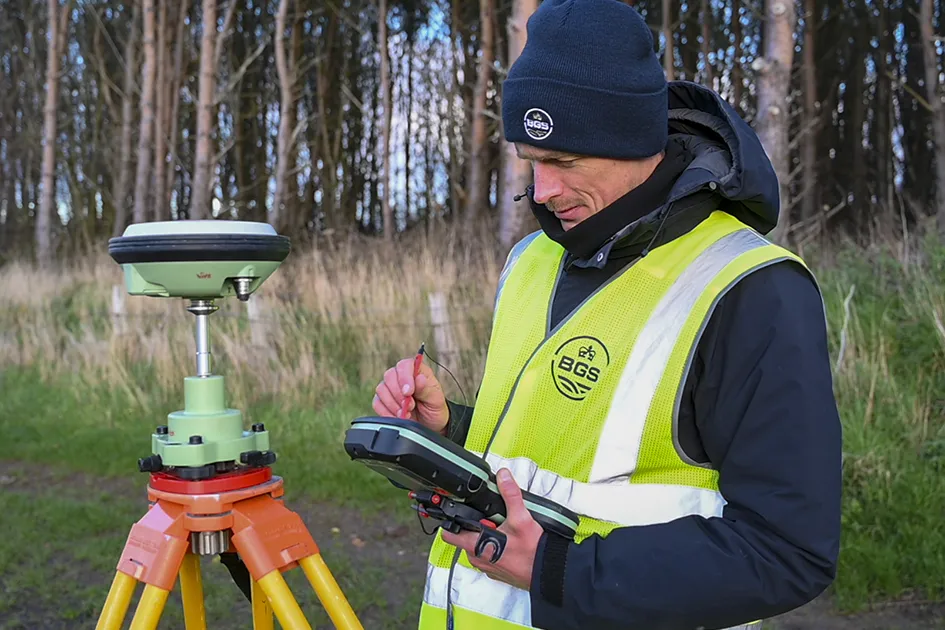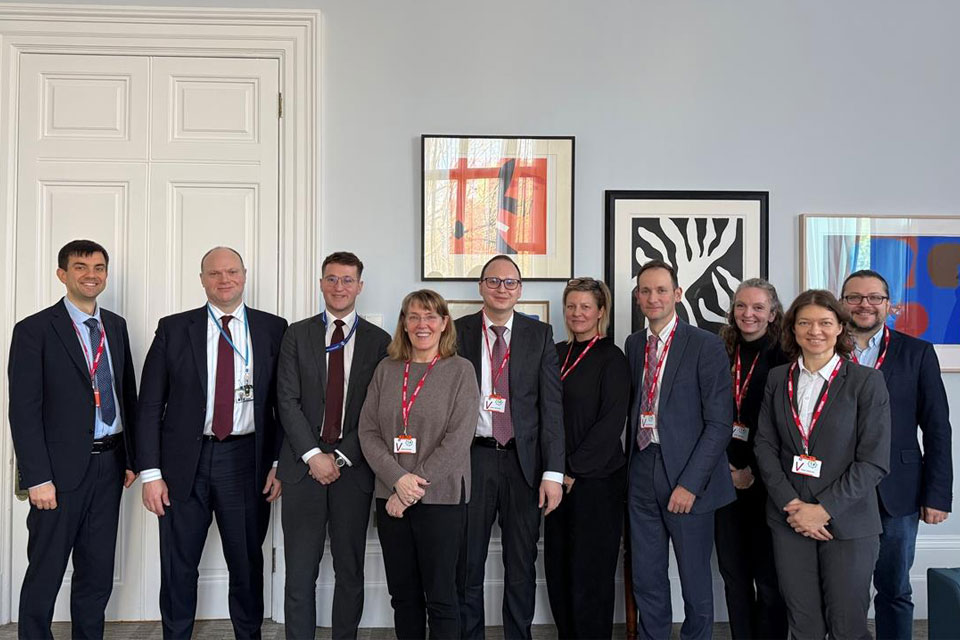New research reveals fresh insights into the role of karst in the Chalk aquifer
New research has thrown fresh light on what scientists understand about the role of karst in the Chalk aquifer, which provides public water supplies to millions of people, agriculture and industry, and sustains vital habitats.
20/12/2021 By BGS Press
New research has thrown fresh light on what scientists understand about the role of karst in the Chalk Group aquifer, which provides public water supplies to millions of people, agriculture and industry, and sustains vital habitats. A study led by BGS, published in the Geological Society of London Special Publication SP517, The Chalk Aquifers of Europe, has compiled evidence showing that karst and rapid groundwater flow are much more widespread in the Chalk than previously thought.
The study will be of particular interest for regulators and water companies, both globally and in the UK, when planning future approaches to groundwater source protection and catchment management. Existing research shows that globally, around 20 to 25 per cent of people rely on karst groundwater for supply.
What is karst?
‘Karst’ is a geomorphological term that is applied to a type of landscape where erosion caused by dissolution, in other words the dissolving of bedrock, has resulted in fissures, sinkholes, sinking streams, ridges, caves, springs and other characteristic features. It is typically associated with soluble rock types such as limestone, marble and gypsum.
The Chalk is an unusual karst aquifer with limited cave development, but extensive networks of smaller solutional conduits and fissures that enable rapid groundwater flow. Small-scale karst features such as dolines, stream sinks, dissolution pipes and springs, are common.
This research is the culmination of many years work and is a step forward in our understanding of the Chalk aquifer. Our research presents evidence of the extent of karst in the Chalk throughout England, including almost 100 tracer connections demonstrating rapid groundwater flow.
We found high densities of stream sinks, and karstic conduits, springs, dolines and dissolution pipes are common.
We demonstrate that rapid groundwater flow and karst occur much more frequently than previously thought, which provides an important step forwards in our conceptual understanding of the Chalk and of global karst aquifers more generally.
Our work examines the implications of karst in the Chalk for groundwater protection and demonstrates how the evidence for karst should be central to future strategies for groundwater protection and management.
Louise Maurice, BGS Senior Hydrogeologist and lead author of the study.
Studying karst
Improved understanding of Chalk karst will expand understanding of similar karst aquifers with limited cave development that are globally widespread and provide vital public water resources to millions of people.
Such insights into the unique nature of Chalk karst may also help to advance understanding of classical karst aquifers, where major caves are often the main focus of research and fissures or smaller conduits are less understood.
The full study is titled Karst hydrogeology of the Chalk and implications for groundwater protection. The work is funded by the NERC knowledge Exchange fellowship scheme.
Other work in the Geological Society of London special publication also highlights the importance of karst in the Chalk, including a further BGS-led study, The genesis and evolution of karstic conduit systems in the Chalk.
Relative topics
Related news

Funding awarded to map the stocks and flows of technology metals in everyday electronic devices
12/02/2026
A new BGS project has been awarded Circular Electricals funding from Material Focus to investigate the use of technology metals in everyday electrical items.

New UK/Chile partnership prioritises sustainable practices around critical raw materials
09/02/2026
BGS and Chile’s Servicio Nacional de Geología y Minería have signed a bilateral scientific partnership to support research into critical raw materials and sustainable practices.

Extensive freshened water confirmed beneath the ocean floor off the coast of New England for the first time
09/02/2026
BGS is part of the international team that has discovered the first detailed evidence of long-suspected, hidden, freshwater aquifers.

Funding secured to help mitigate ground risk in UK construction sector
05/02/2026
The BGS Common Ground project has been awarded new funding to help unlock the value of ground investigation data.

Can sandstones under the North Sea unlock the UK’s carbon storage potential?
02/02/2026
For the UK to reach its ambitious target of storing 170 million tonnes of carbon dioxide per year by 2050, it will need to look beyond the current well-studied geographical areas.

Quaternary UK offshore data digitised for the first time
21/01/2026
The offshore wind industry will be boosted by the digitisation of a dataset showing the Quaternary geology at the seabed and the UK’s shallow subsurface.

Suite of ten new soil reference materials released
02/01/2026
BGS has a longstanding track record of producing high-quality reference materials and has released ten new soil reference materials.

Perth and Kinross tops the UK’s earthquake activity charts for 2025
29/12/2025
Seismologists at BGS have published data on the number of seismic events over the past 12 months with over 300 earthquakes recorded.

BGS awarded funding to support Malaysia’s climate resilience plan
17/12/2025
The project, funded by the Foreign, Commonwealth & Development Office, will focus on minimising economic and social impacts from rainfall-induced landslides.

New geological maps of the Yorkshire Wolds to better inform groundwater management and policy decisions
17/12/2025
The new mapping provides crucial data on localised geological issues that may assist in protecting water supplies.

‘Three norths’ set to leave England and not return for hundreds of years
12/12/2025
The historic alignment of true, magnetic, and grid north is set to leave England, three years after they combined in the country for the first time since records began.

BGS agrees to establish collaboration framework with Ukrainian government
11/12/2025
The partnership will focus on joint research and data exchange opportunities with Ukrainian colleagues.



